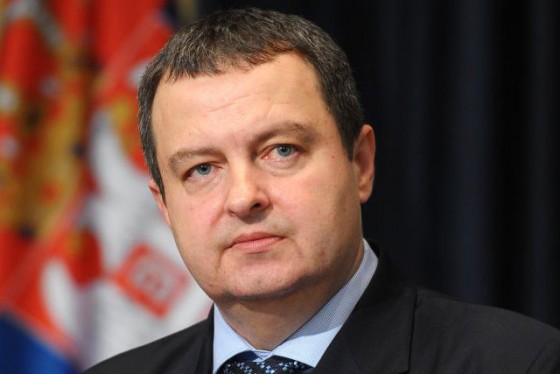
OSCE chairperson-in-office, Serbia’s Foreign Minister Ivica Dacic met the Co-Chairs of the OSCE Minsk Group Igor Popov of the Russian Federation, James Warlick of the United States of America, and Pierre Andrieu of France, and the Personal Representative of the OSCE Chairman-in-Office, Ambassador Andrzej Kasprzyk, in New York, OSCE press-service reported Sept. 29.
Ambassadors informed Dacic about the latest surge in violence and the talks they have held with Azerbaijani and Armenian officials since. He strongly condemned the recent escalation, offering his condolences to the families of the victims, appealing to all to show maximum restraint and work towards de-escalation.
Dacic expressed his full support to the work of the OSCE Minsk Group, and reiterated their call for advancing negotiations on a lasting settlement for the Nagorno-Karabakh conflict, as well as for implementing confidence-building measures.
The attempts of Armenian armed forces to become active were prevented as a result of the proactive measures taken by the Azerbaijani armed forces’ units on the contact line of the two countries’ armies on Sept.27-28.
As a result, Azerbaijani armed forces eliminated seven Armenian servicemen.
Additionally, a large number of Armenian servicemen got injured.
The conflict between the two South Caucasus countries began in 1988 when Armenia made territorial claims against Azerbaijan. As a result of the ensuing war, in 1992 Armenian armed forces occupied 20 percent of Azerbaijan, including the Nagorno-Karabakh region and seven surrounding districts.
The two countries signed a ceasefire agreement in 1994. The co-chairs of the OSCE Minsk Group, Russia, France and the US are currently holding peace negotiations.
Armenia has not yet implemented the UN Security Council’s four resolutions on the liberation of the Nagorno-Karabakh and the surrounding regions.
Trend
